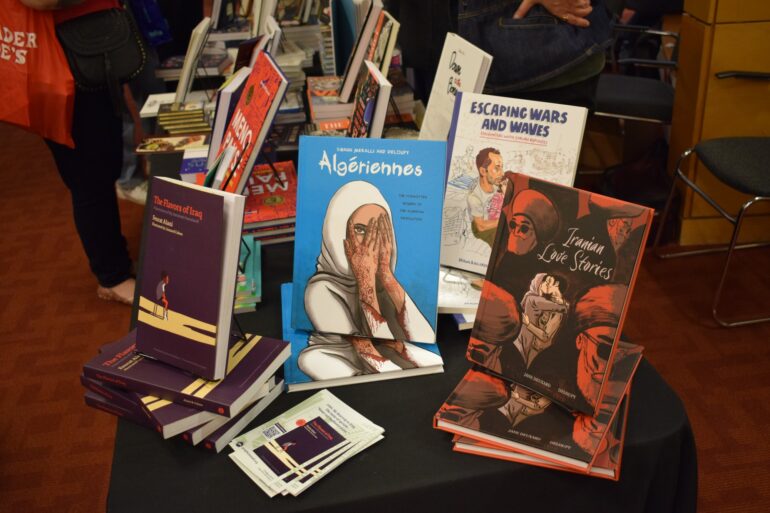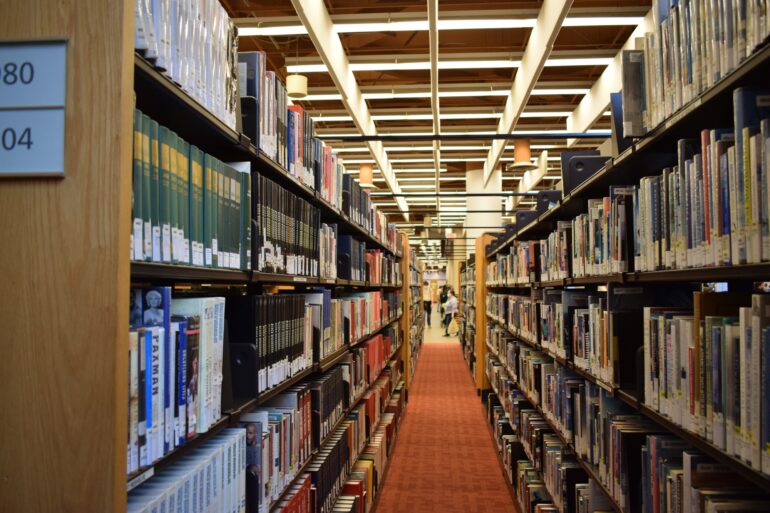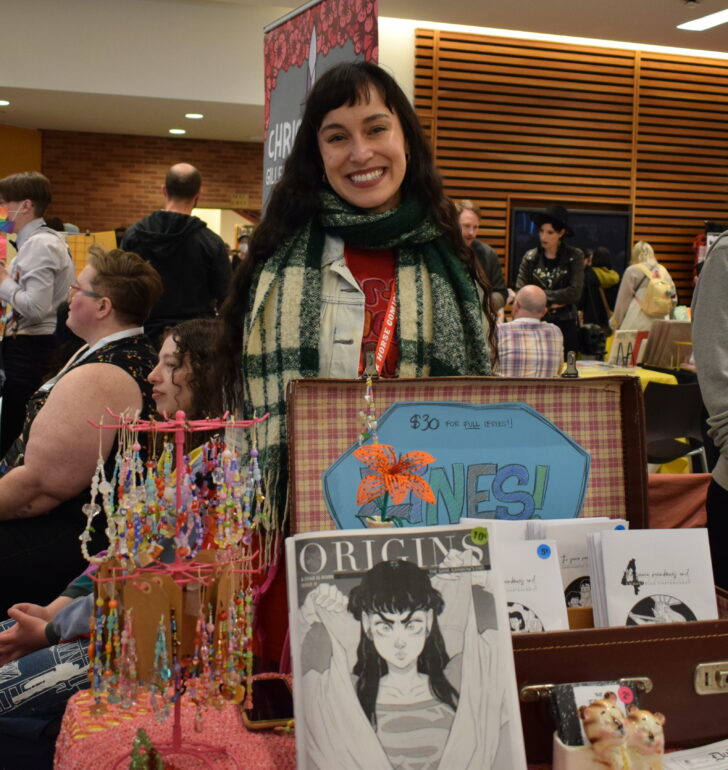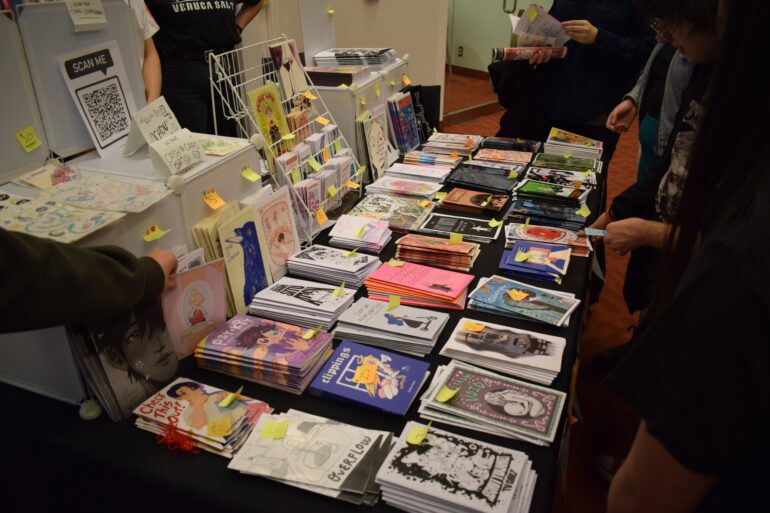Literacy through comic art continues to be a driving force behind the ethos of the Toronto Comic Arts Festival, which returned last weekend at the Toronto Reference Library.
Attendees can find everything from slice of life novellas to graphic novels documenting revolution in the Middle East at the yearly two-day event.

Graphic novels of various subject matters encourage education by reading graphic novels. Photo credit: Liv Chug
A study by the Children’s Book Review said comics make great gateway novels for those learning to read.
The event, hosted at the Toronto Reference Library, was reflective of the legitimacy of comic readers and artists. The library remained fully functional during TCAF operating hours with on-site library support to promote reading options for attendees.

The Toronto Reference Library remained fully operational to encourage readers to make use of TPL systems during the event. Photo credit: Liv Chug
The event hosts more than 300 vendors from six different countries, showcasing a plethora of storytelling styles and content.
One of the many comic artists tabling at TCAF this year was Emanuelle Châteauneuf, a two-time exhibitor who said literacy comes in many forms.
“TCAF is promoting a different kind of reading, reading with images, which is very different from classical literature,” Châteauneuf said.

Emanuelle Châteauneuf is a comic artist who supports Canadian literacy through her craft. Photo credit: Liv Chug
“I’m pretty sure North American comics are seen as a lower grade of literature, maybe not as revered as Europe or Asia, but we make really great art here too”, she said.
Many talented comic artists had to leave the country to find success in the past, TCAF executive director Miles Baker said.
That’s why he said there is a need for TCAF to promote literacy on Canadian soil.

TCAF executive director Miles Baker has a dream to grow literacy through comic arts. Photo credit: Toronto International Festival of Authors
“Indie comic readership has really increased in the last 20 years, while readership of mainstream comics has sharply declined,” Baker said.
“In 2000, the best-selling Marvel or DC comic was selling 100,000 copies, and now I think it’s about half of that per month,” he said.
While mainstream comic sales became less appealing, the rise of indie publishers brought fans through the Reference Library doors for TCAF again this year.
Comics, graphic novels and zines aren’t the only things visitors can purchase, but every vendor needs at least one of those to table at the event.
“Our focus really is book-forward. We’re a book festival first, and in that world, you get real diversity of expression,” Baker said.
TCAF organizers are proud of promoting literacy through the proliferation of comic novels requires a lot of organization.
“For TCAF, we curate our exhibitor floor, which is a lot of work to do, and it is not something that most other comics conventions do,” Baker said.
“One of the advantages we have in our curation is to make sure there is a real diversity in the comics that are coming to TCAF,” he said.

Toronto Arts Council Literary Arts program Manager Rudrapriya Rathore said TCAF has a literary legacy. Photo credit: Toronto Arts Council
Bringing different kinds of stories to the event means promoting reading literacy across different identities is important to libraries, institutions and councils in Toronto and beyond.
“The Toronto Comic Arts Festival is a wonderful way to connect comics enthusiasts and artists,” said Rudrapriya Rathore, literary arts program manager at the Toronto Arts Council.
“TAC is proud to support the work they do to promote publishers and artists in this art form, and excited to see how they continue to grow,” she said.


